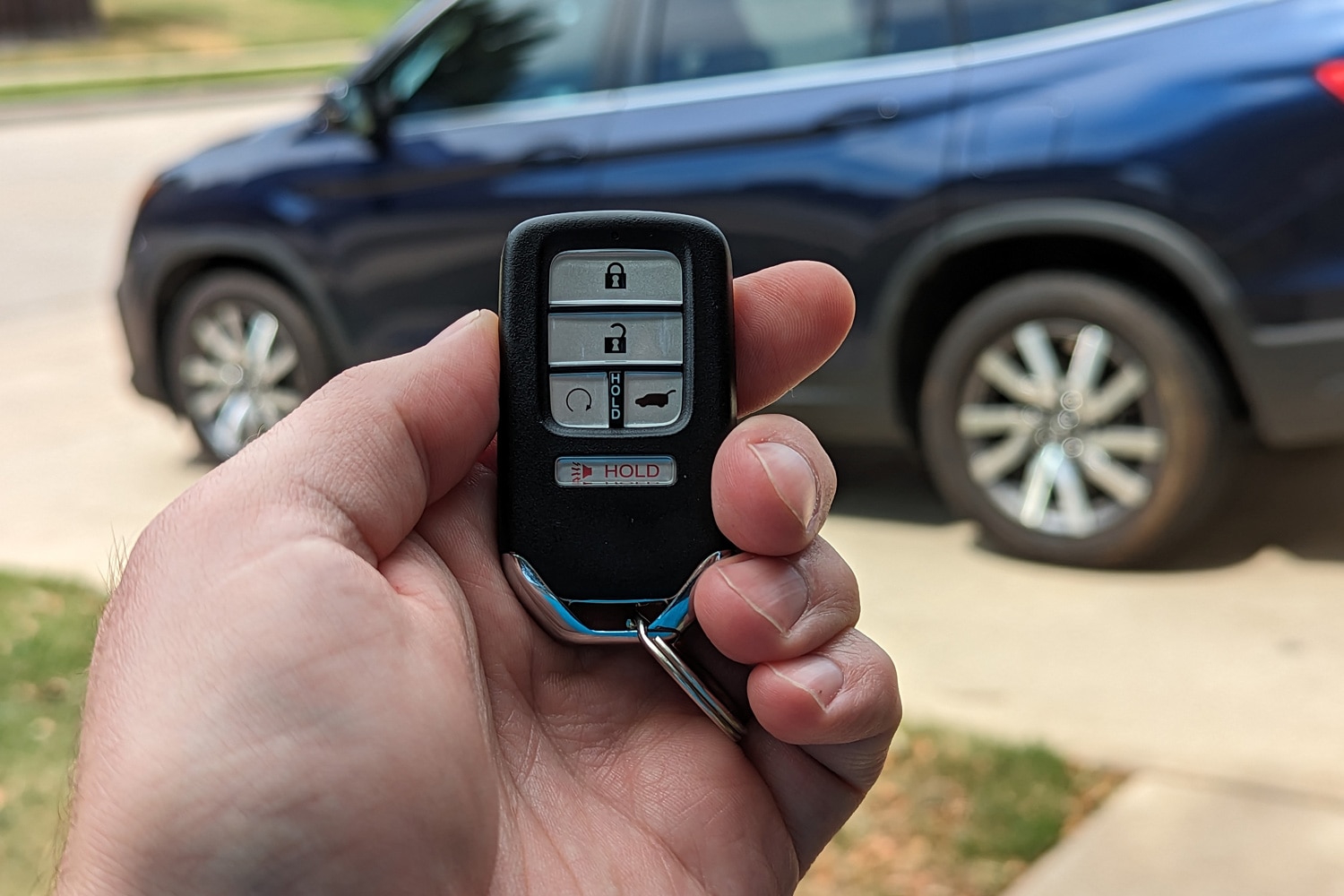What to Know About Replacing a Key Fob
Losing your keys is more expensive than it used to be, thanks in part to modern automotive security systems.
 Austin Lott | Capital One
Austin Lott | Capital One
Article QuickTakes:
It used to be that if you lost a car key, you could either head to the local hardware store and have a new one cut from your spare or visit your dealership with your registration and vehicle identification number, or VIN, and have a key-fob replacement made while you waited.
These days, simple metal keys have been largely replaced by key fobs. These high-tech devices introduced modern convenience features — such as keyless entry and improved security — that many drivers have come to rely on.
They are also, however, both pricier than the old style of keys and more complicated to replace. Some "smart" fobs have taken the place of keys altogether, and their integration into sophisticated vehicle-security systems can make them a hassle to replace.
Why Key Fobs Can Need Replacing
Just like keys, fobs can be easy to misplace. They're also not indestructible. As with any piece of consumer technology — particularly one that spends much of its life jostling around in pockets and purses — key fobs can eventually stop working.
Although their plastic and metal shells are designed to take a beating, fobs are constantly being dropped, bounced, banged, and exposed to moisture and extreme temperatures.
Where to Get a Replacement Key Fob
Aftermarket key fobs that function just like factory units are available for many vehicles. While some companies do offer generic universal key fobs, automotive locksmiths generally recommend against them, arguing that it's better to buy fobs that are made specifically for your vehicle's make and model so you can be sure they'll function properly.
It's also worth buying from a reputable source for automotive key fobs, keys, and other locksmithing services instead of simply hunting for the least expensive option. That way you'll avoid the potential headache of getting a mismatched or poorly functioning fob.
Not all vehicles can make use of aftermarket fobs, however. If yours is one of them, you'll likely have to head to the dealer. Usually, if the fob is available only from the dealership it's because preparing a replacement requires technological and security expertise exclusive to the original manufacturer's service department.
How to Program a Key Fob Replacement
Some replacement units — usually those for older car models with less sophisticated security systems — can be programmed by the consumer with relative ease. The self-programming procedure typically consists of simple, repeatable steps. It's important to note, however, that usually you'll need at least one — and sometimes two — functional keys to program a replacement.
Other replacement fobs can only be programmed by a dealership. Again, this is generally due to the security features and software systems used in late-model vehicles.
Automotive locksmiths can program many key fob replacements, and in certain cases will use software designed specifically for vehicle-security systems and key-fob programming. In fact, some dealerships outsource their key fob replacement services to locksmiths.
How Much It Might Cost to Replace a Key Fob
A few variables will determine how much it costs to replace your key fob. If a key fob is more mechanically complex, it's typically more expensive to replace. Older fobs that you program yourself typically cost between $50 and $100. Expect to pay between $200 and $300 for key fobs that contain what's known as a switchblade key that pops out at the push of a button.
There are also key fobs that perform a wider range of functions or are part of advanced security systems. Features including keyless entry and push-button start, remote start, or similar functions fall into the "smart key" category. You could end up spending around $500 for a replacement key fob with all of this functionality. At the very high end are fobs that include an LCD display, such as those for some high-end BMWs. Replacements for these units can soar into the $1,000 range.
Backup Keys and Apps to the Rescue
Many fobs that don't include a switchblade key come with a small metal key embedded in them that's meant to be used if the fob fails. This key slides in and out of the fob. It can be used to open doors and to start the vehicle using a physical ignition lock that's usually tucked below the engine start/stop button on the steering column or in the center console.
It's also worth noting that even a key fob with a dead battery can sometimes be used to start a car. Pushing the ignition button with the dead fob instead of your finger can occasionally transmit enough of a signal to activate the security circuits and start the engine.
Some vehicles go one step beyond key fobs and offer apps for your phone that can open door locks and start the ignition. Aftermarket apps are available for many models that don't come with one from the manufacturer.
If you lose your fob, this software may let you use your phone to maintain access to and use of your vehicle while you work on getting your fob replaced.



